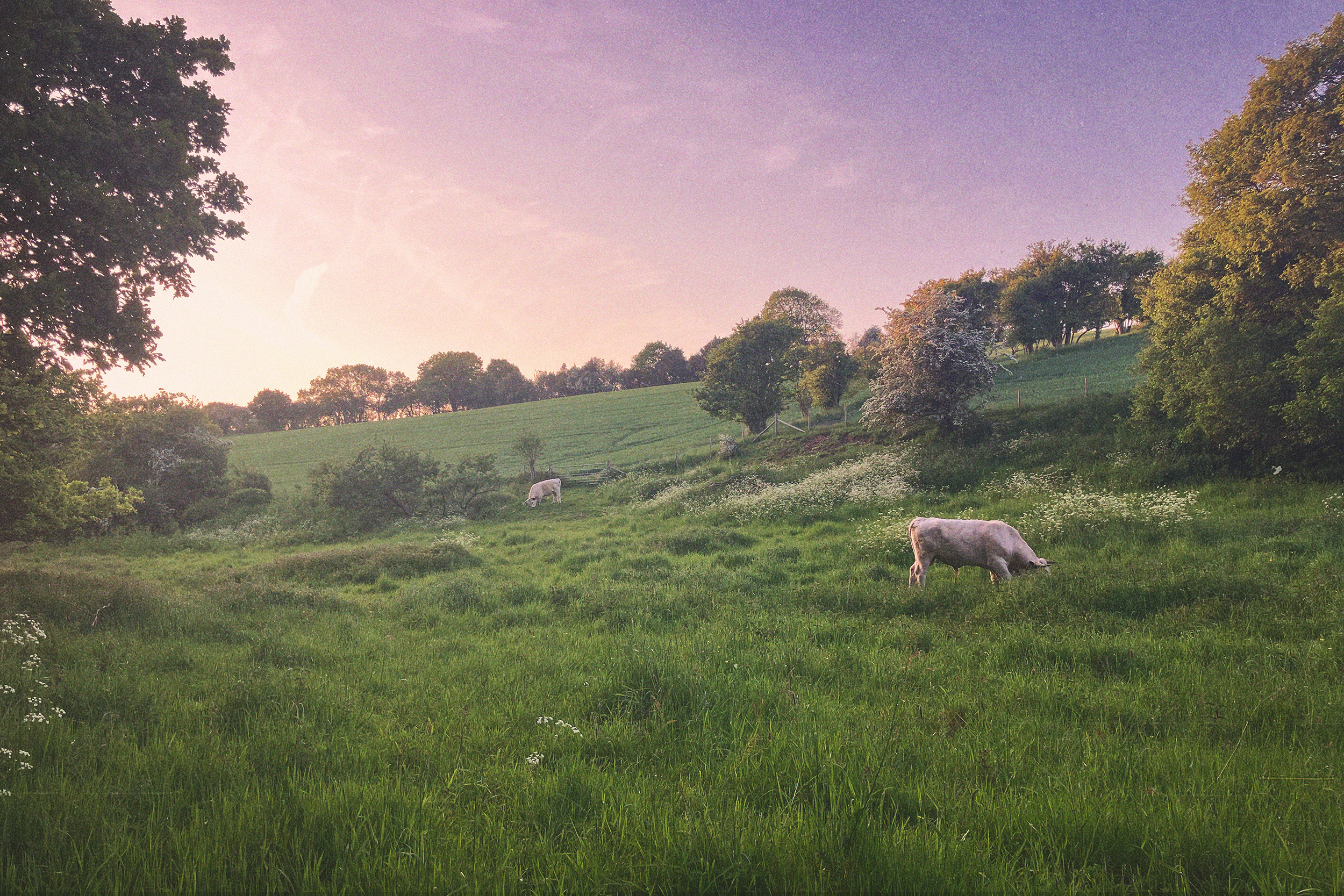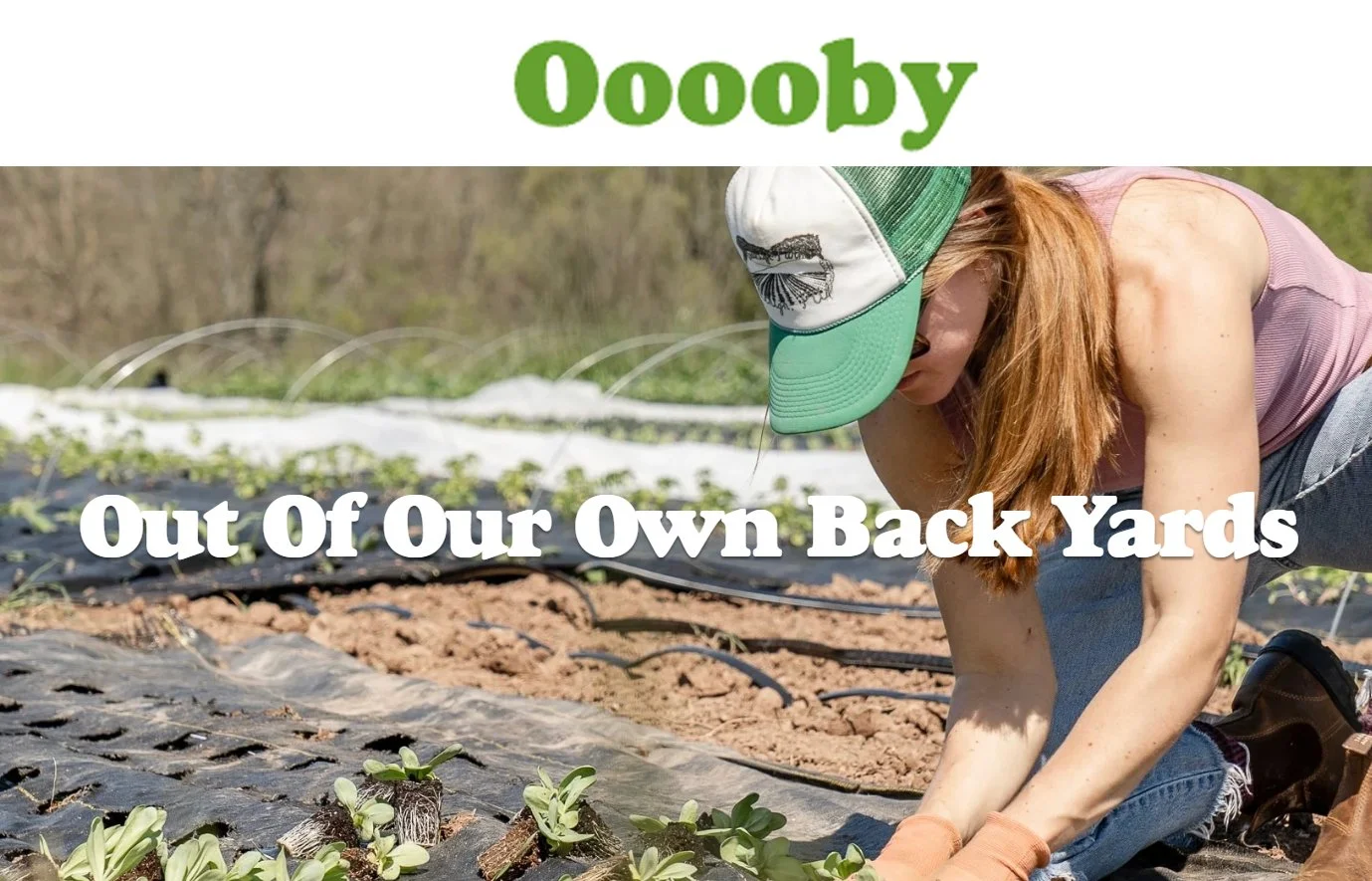Here at Cheyney’s we are driven by systems that harmonise human interactions with nature. It emphasises collaboration, resource-sharing, and sustainable practices to create resilient, self-reliant, and inclusive communities. We believe that by fostering local food production, waste reduction, and meaningful connections, it enriches both the environment and community well-being simultaneously.
Come with us on our journey.
ABOUT THE FARM
Cheyney's Farm is nestled in the picturesque countryside of Lee Common, a charming hamlet in the heart of the Chiltern Hills. We're located right next to the Cock and Rabbit pub, and are fortunate to have access to a beautiful four-acre pasture field.
This field has only ever been lightly grazed by cattle for just two or three months each year, allowing it to develop a rich, healthy layer of topsoil. It’s the perfect foundation for nurturing both our animals and the vegetables in our garden, making Cheyney’s Farm a truly special place to grow and thrive.
We’re proud to raise a laying flock of truly free-range, pasture-raised hens, a 30-strong herd of rare breed White Park cattle, and maintain a half-acre no-dig market garden. We also keep a small flock of sheep, and are excited to welcome Mangalica pigs to the farm soon!
WHAT IS REGENERATIVE AGRICULTURE?
Regenerative agriculture is a farming approach that prioritises the restoration and improvement of soil health, biodiversity, and ecological balance.
It emphasizes practices that promote soil carbon sequestration, reduce the use of synthetic inputs, and support the natural ecosystem functions that sustain crops and livestock.
Regenerative agriculture also aims to enhance the resilience of agroecosystems to climate change and reduce their environmental impact by improving water management, reducing erosion, and promoting natural pest control.
By fostering a more holistic and collaborative relationship between farmers, consumers, and ecosystems, regenerative agriculture has the potential to contribute to food security, ecological sustainability, and climate mitigation.
WHY DO WE PRACTICE REGENERATIVE AGRICULTURE?
There are many reasons why we choose to practice regenerative agriculture over modern conventional farming methods. For one, regenerative agriculture prioritizes soil health, which in turn supports better plant growth and higher yields over the long term.
Additionally, regenerative agriculture reduces reliance on synthetic inputs and pesticides, which can be harmful to both human health and the environment. Regenerative agriculture also promotes biodiversity and ecological balance, which can lead to more resilient and sustainable agroecosystems.
Finally, regenerative agriculture has the potential to mitigate climate change by sequestering carbon in the soil and reducing greenhouse gas emissions from synthetic inputs and tillage. Overall, regenerative agriculture offers a more holistic and sustainable approach to farming that prioritizes the long-term health and resilience of our food systems and the planet.
MOBILISING LOCAL FOOD NETWORKS
Localised food refers to food produced and consumed within a particular region or community. It promotes the use of locally sourced ingredients, reducing the carbon footprint associated with transportation and storage. It also supports local farmers and small businesses, fosters community connections, and promotes fresh and seasonal eating habits.
There are several compelling reasons why here at Cheyney's we are passionate about local food. Firstly, it supports the local economy by keeping money circulating within the community and supporting small-scale farmers and producers.
Secondly, it helps to reduce the carbon footprint associated with food transportation and storage. Additionally, supplying local food can help to build community connections and promote a sense of place and identity.
Finally, local food seasonal, is often fresher, healthier, and more diverse, offering consumers a unique and rewarding culinary experience. All of the above contributes to greater food security for all, which is becoming even more critical in this fast changing globalised world we all live in today.
Our veggie boxes supplied with as many local products as possible, but due to the nature of the weather in the UK, we sometimes have to source from further afield. But rest assured, all our products are British, and nothing is ever air-freighted. And all the products we sell will be from farms who grow their produce with no dig, regenerative or organically. You can see a full list of all the suppliers we use when you log into your account.
WHO WE CHOOSE TO PARTNER WITH
We like to choose our partners carefully at Cheyney’s to ensure we’re dealing with the sort of people that have the same ethos as us.
That is why we chose Ooooby to provide our subscription software. Ooooby (Out Of Our Own Back Yards) provide subscription software and services to small scale local farmers and growers across the country.
They started off as farmers and veg box providers themselves, and organically built the system to deal with their own customers' subscriptions. They quickly realised that other local growers could benefit from this system too, so rolled out Ooooby as a service to enable other local producers to sell their products easily, and have created a network of hubs all across the UK.
They exist to rebuild small-scale food economies by providing software and support for small-scale farms and local food businesses to compete with large scale food producers and retailers, and to help get local, regenerative food to people effectively and efficiently. There’s really nothing not to like about them as far as we can see!




